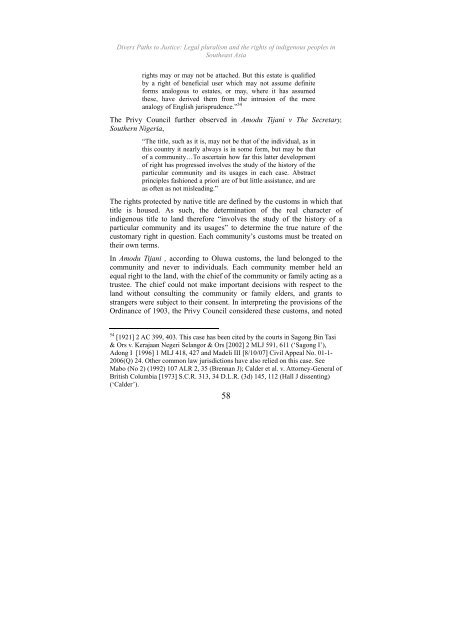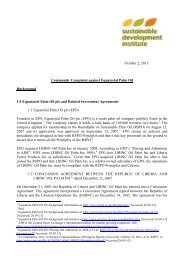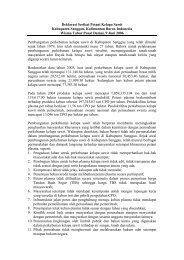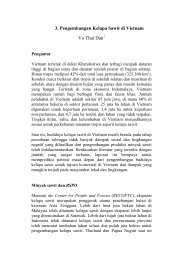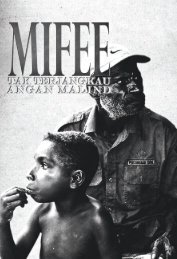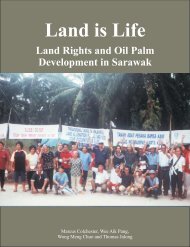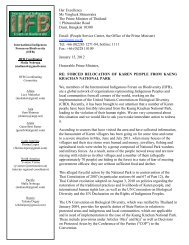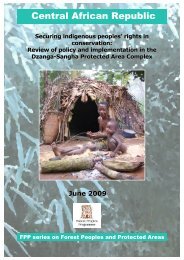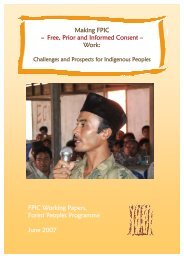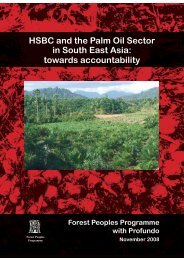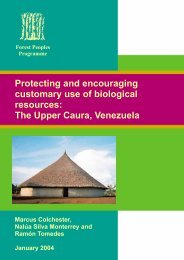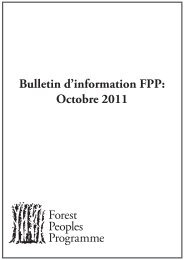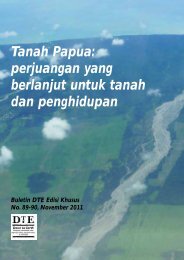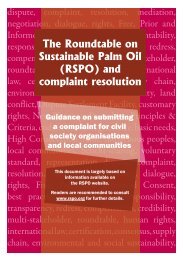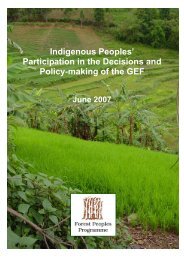Divers Paths to Justice - English - Forest Peoples Programme
Divers Paths to Justice - English - Forest Peoples Programme
Divers Paths to Justice - English - Forest Peoples Programme
Create successful ePaper yourself
Turn your PDF publications into a flip-book with our unique Google optimized e-Paper software.
<strong>Divers</strong> <strong>Paths</strong> <strong>to</strong> <strong>Justice</strong>: Legal pluralism and the rights of indigenous peoples inSoutheast Asiarights may or may not be attached. But this estate is qualifiedby a right of beneficial user which may not assume definiteforms analogous <strong>to</strong> estates, or may, where it has assumedthese, have derived them from the intrusion of the mereanalogy of <strong>English</strong> jurisprudence.” 54The Privy Council further observed in Amodu Tijani v The Secretary,Southern Nigeria,“The title, such as it is, may not be that of the individual, as inthis country it nearly always is in some form, but may be tha<strong>to</strong>f a community…To ascertain how far this latter developmen<strong>to</strong>f right has progressed involves the study of the his<strong>to</strong>ry of theparticular community and its usages in each case. Abstractprinciples fashioned a priori are of but little assistance, and areas often as not misleading.”The rights protected by native title are defined by the cus<strong>to</strong>ms in which thattitle is housed. As such, the determination of the real character ofindigenous title <strong>to</strong> land therefore “involves the study of the his<strong>to</strong>ry of aparticular community and its usages” <strong>to</strong> determine the true nature of thecus<strong>to</strong>mary right in question. Each community’s cus<strong>to</strong>ms must be treated ontheir own terms.In Amodu Tijani , according <strong>to</strong> Oluwa cus<strong>to</strong>ms, the land belonged <strong>to</strong> thecommunity and never <strong>to</strong> individuals. Each community member held anequal right <strong>to</strong> the land, with the chief of the community or family acting as atrustee. The chief could not make important decisions with respect <strong>to</strong> theland without consulting the community or family elders, and grants <strong>to</strong>strangers were subject <strong>to</strong> their consent. In interpreting the provisions of theOrdinance of 1903, the Privy Council considered these cus<strong>to</strong>ms, and noted54 [1921] 2 AC 399, 403. This case has been cited by the courts in Sagong Bin Tasi& Ors v. Kerajaan Negeri Selangor & Ors [2002] 2 MLJ 591, 611 (‘Sagong I’),Adong I [1996] 1 MLJ 418, 427 and Madeli III [8/10/07] Civil Appeal No. 01-1-2006(Q) 24. Other common law jurisdictions have also relied on this case. SeeMabo (No 2) (1992) 107 ALR 2, 35 (Brennan J); Calder et al. v. At<strong>to</strong>rney-General ofBritish Columbia [1973] S.C.R. 313, 34 D.L.R. (3d) 145, 112 (Hall J dissenting)(‘Calder’).58


